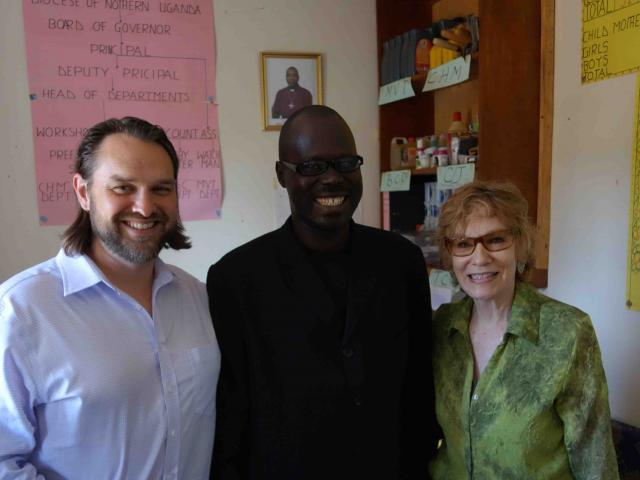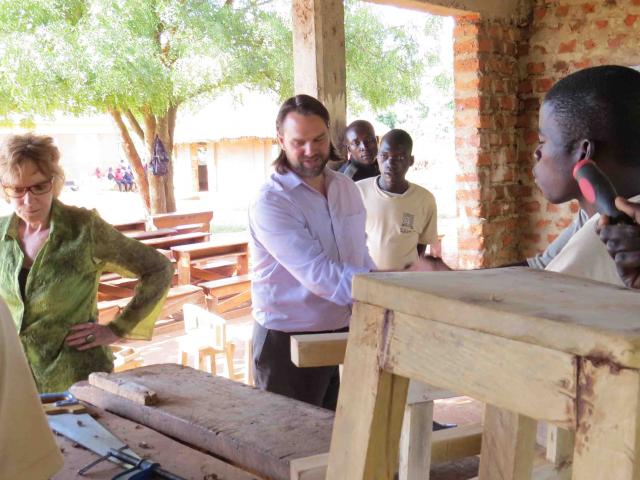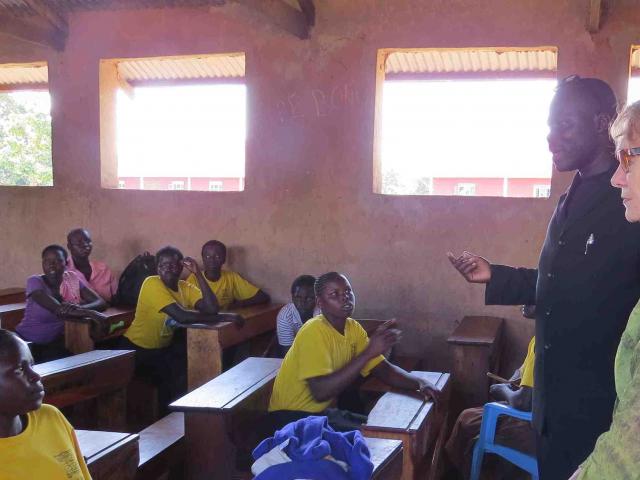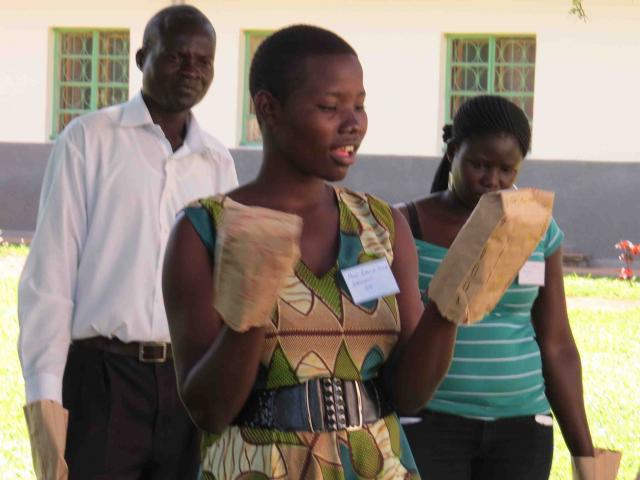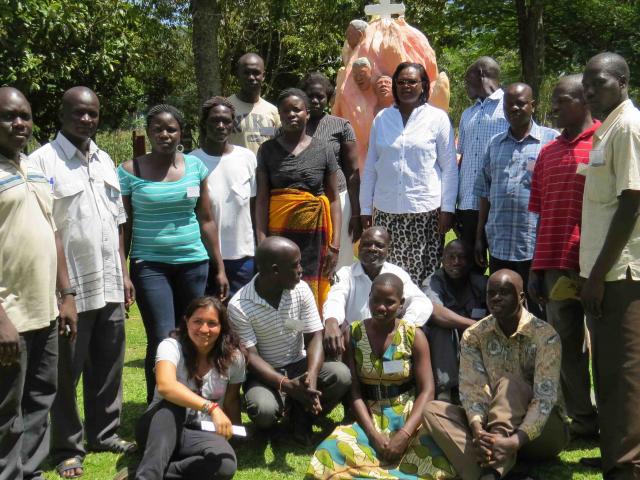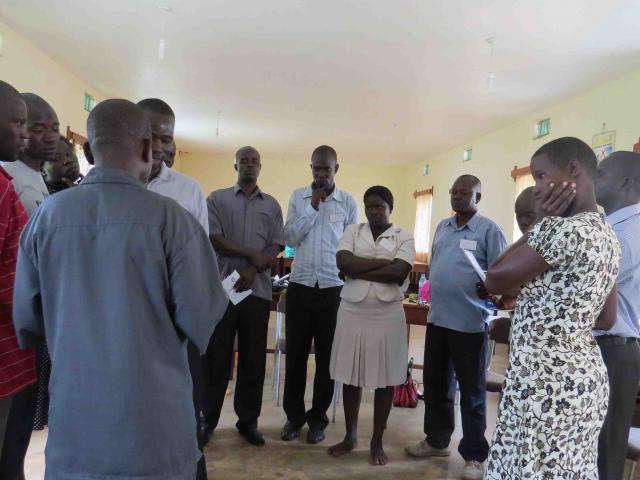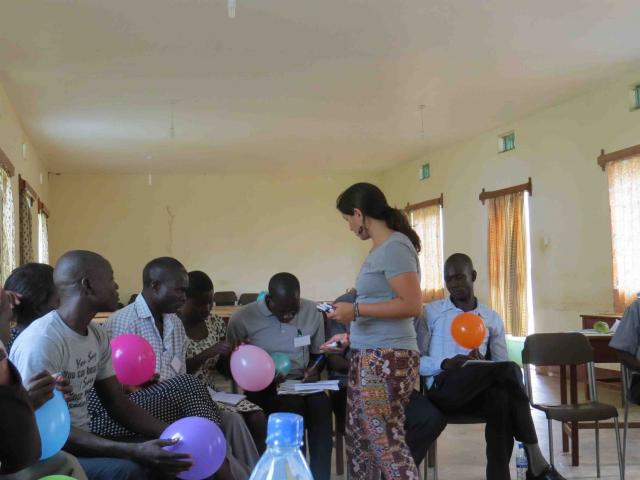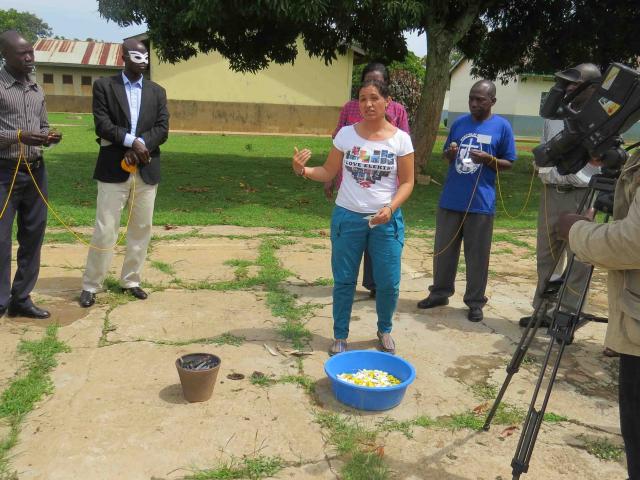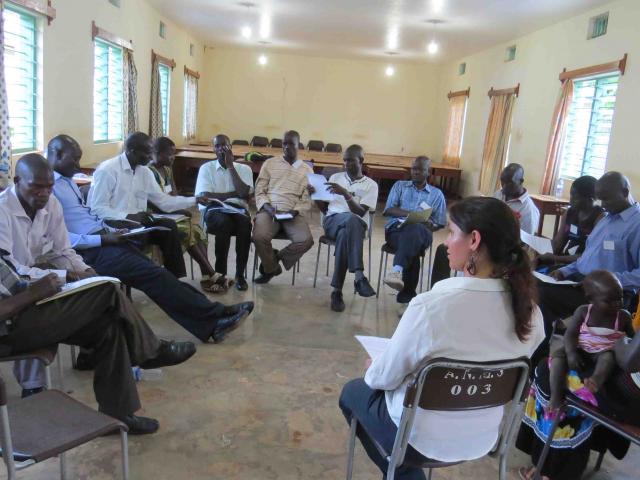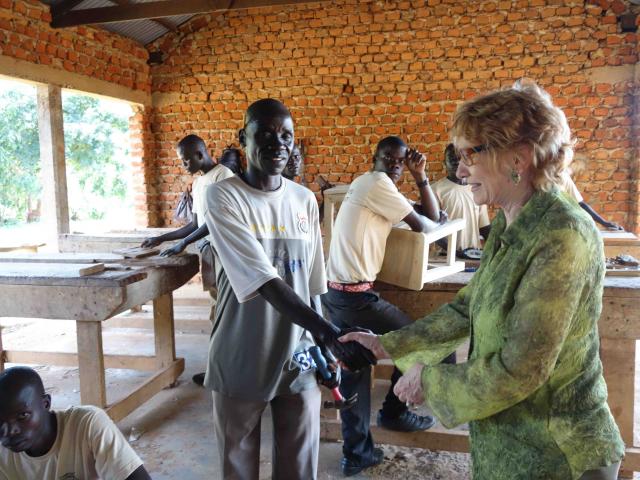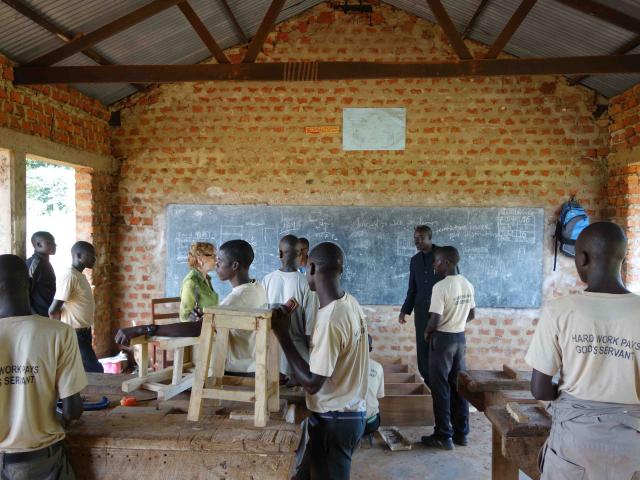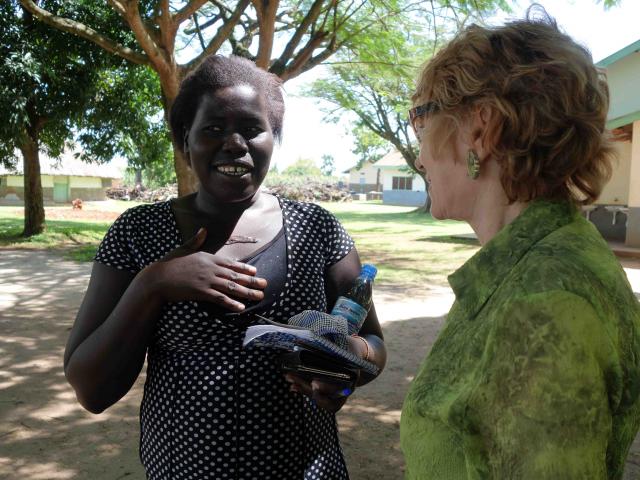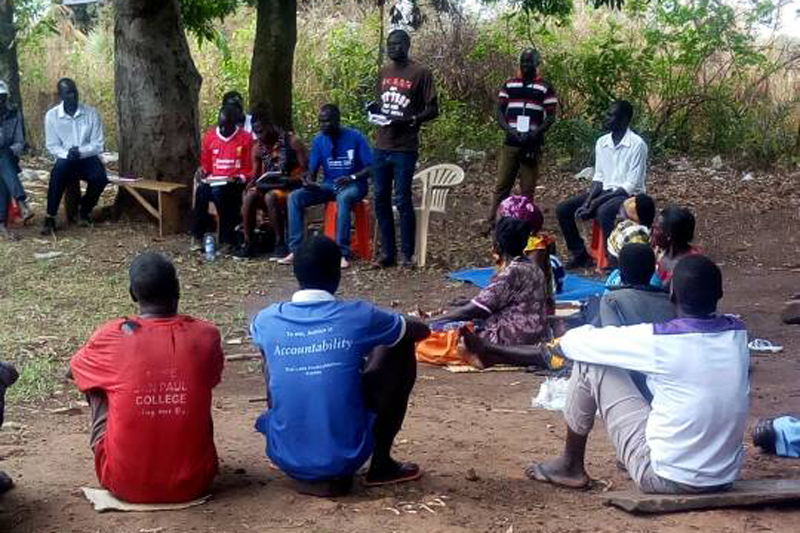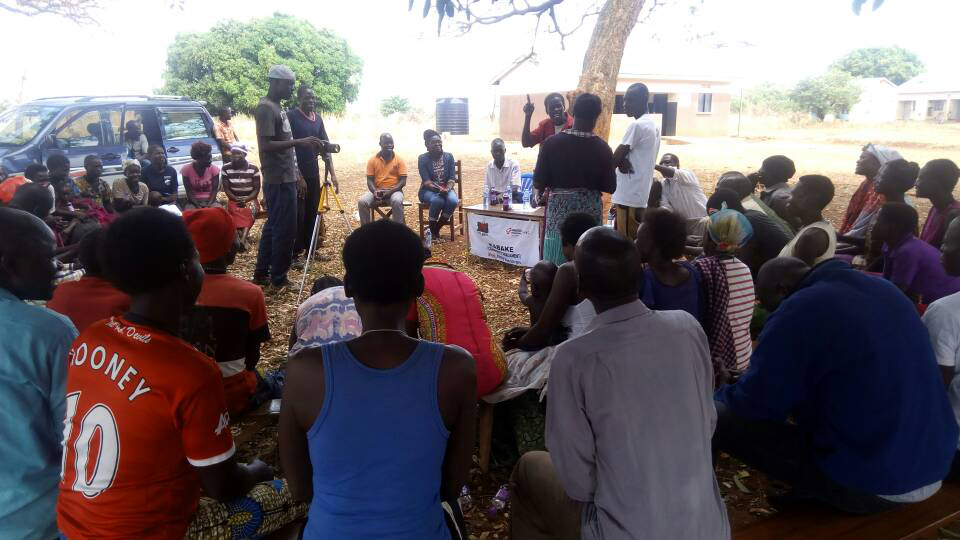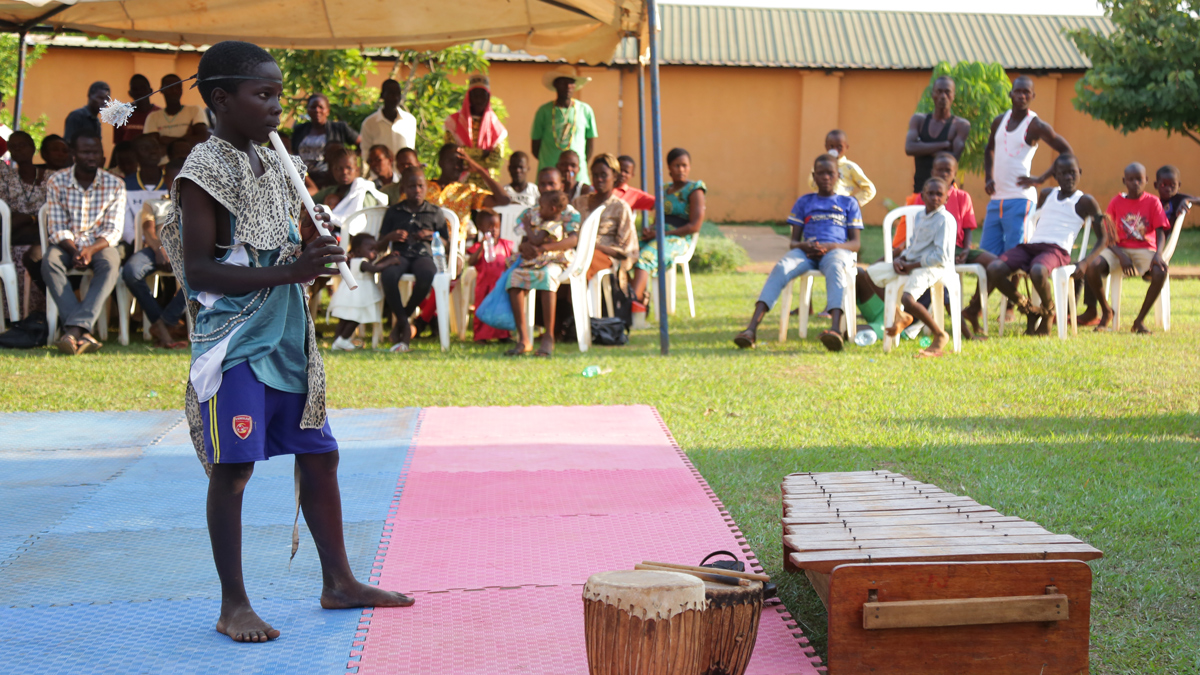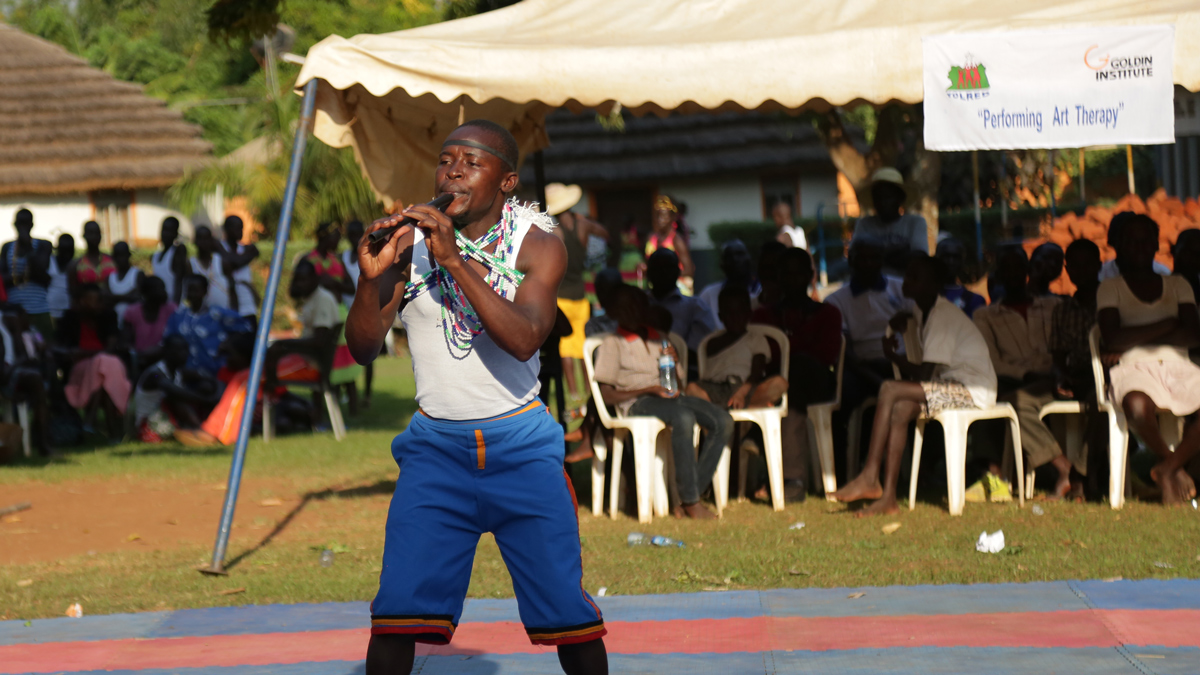This June, Institute co-founders Diane Goldin and Travis Rejman returned to Uganda to participate in our first ever cross-continental Child Soldier Reintegration and Reconciliation Training Workshops. Because of her work in developing and using the ESPERE methodology in her native Colombia, our Global Associate Lissette Mateus Roa was the natural candidate to lead the training in Uganda.
Before bringing this project to Africa, Lissette worked closely with our partner and her advisor, Fr. Leonel Narvaez designing and successfully testing the ESPERE methodology to engage local communities by using schools as centers for reconciliation for former child soldiers in the region. We highlighted their work and what this looks like on-the-ground in Colombia in previous reports.
To best adapt the training to our colleagues in Africa, an intensive eight-day workshop was conducted wherein participants learned about the key concepts of forgiveness and reconciliation, and obtained tools to carry these ideas forward within their communities.
In all, Lissette successfully trained 16 individuals made up of child combatants, teachers, crisis counselors and community members. These participants represented five different regions of Northern Africa and because each certified trainer committed to individual action plans upon completion, the outreach within their communities will impact many more potential trainees. In short, Lissette has left a "teaching tree" model in place that we hope to see expand and carry forth the ESPERE program within the region.
My expectations were different than the reality in Africa, normally the mass media shows to the world the bad things about Africa, I was expecting some kind of hungry people, in a dusty or dirty environment, waiting for water and food. But, I realized (once there and on the ground) that they have needs, but also they have so many good things that the mass media doesn't talk about: they are a happy and generous people, (there are) amazing buildings for education, they are bilinguals and have spoken their own language and English since they were kids, they have some kind of sense of community that we have lost in our developed societies, and is highly necessary for healing our societies – they are ahead of the game in that sense. I realized we have as many things to learn from them as they can learn from us. I'm not saying everything is perfect, I'm just saying that not everything is bad, and there is great hope for the future because of the people. Moreover, I was expecting a very rough place but it was a beautiful place for the workshop."
- Global Associate and program facilitator, Lissette Mateus Roa
Lissette's excerpted comments above are from a conversation with her upon her return from Africa. The full interview can be found here.
In coming months, we look forward to sharing the results of the action plans established by the trainees at Lissette's ESPERE workshop, as they carry out the mission to bring societal changes to their own communities in Northern Africa. If you would like to become more involved supporting this project, find out how you can help.

